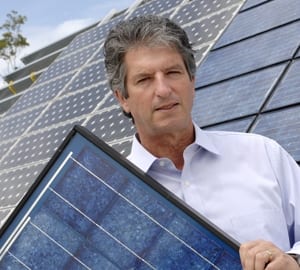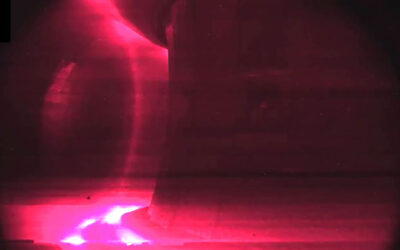 Scientia Professor Martin Green from UNSW, a world leader and pioneer in solar photovoltaic science and engineering, has been elected into the prestigious Fellowship of the Royal Society.
Scientia Professor Martin Green from UNSW, a world leader and pioneer in solar photovoltaic science and engineering, has been elected into the prestigious Fellowship of the Royal Society.
The Royal Society is the United Kingdom’s national Academy of science. Its self-governing Fellowship is comprised of some 1,450 of the world’s most distinguished scientists and engineers, including more than 80 Nobel Laureates.
“It’s really quite an honour,” says Professor Green, Director of the new Centre for Advanced Photovoltaics, based within the UNSW School of Photovoltaics and Renewable Energy Engineering.
In an academic career spanning nearly 40 years at UNSW, Green has attracted talented researchers, supervised more than 60 PhD students, and set numerous world-records for silicon solar cell efficiency – including the current record of 25% conversion efficiency.
He is renowned for developing and commercialising silicon solar cell technologies, and has often been referred to as the ‘father of photovoltaics’ – the science of converting sunlight directly into electrical energy.
He is now working on developing third generation solar cells, which will combine other semiconductor materials on top of silicon to improve efficiency. “Our UNSW research group would like to be the one to develop a practical cell that takes us from 25% to over 40% efficiency,” he says.
Each year the Royal Society elects 44 Fellows and eight Foreign Members from more than 700 candidates. There is a peer-reviewed nomination process before existing members vote. Notable Fellows include scientists Richard Dawkins and Stephen Hawking.
“The University congratulates Scientia Professor Martin Green on this significant personal achievement,” says Professor Les Field, Deputy Vice Chancellor (Research) at UNSW.
“Martin has been a prolific researcher and an incredibly valued teacher at UNSW for nearly four decades,” said Field. “Under his leadership, UNSW has established itself as a global leader in photovoltaic science, producing hundreds of PhD-qualified graduates and many leading solar entrepreneurs.”
“He is an ambassador for this University and for renewable energy, and a perfect example of how Australian innovation and ingenuity can have an enduring impact around the world.”
Source: University of New South Wales

















